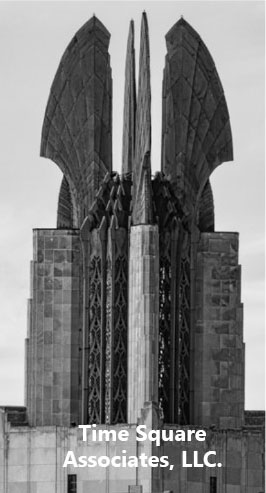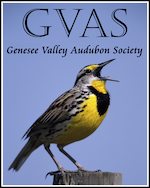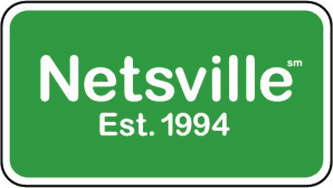Quest Update: October 21-25
View Larger Map
(Zoom in or out on the map by clicking the small “+†& “-†signs. Move it around by clicking your mouse button and dragging the map in the desired direction. Click the falcon icons for more information about each location.)
Staying true to form, Quest is still spending her days just off the Cape Cod coast. Most of her daylight activity is centered on the Monomoy NWR, though she returned to Wellfleet Bay on the 25th. Interestingly, data from her her transmitter has placed her off shore as early as 2:00AM. This may indicate that she’s doing some nighttime hunting, perhaps taking advantage of prey that are migrating during that time. Peregrines are known to hunt at night, though it usually occurs in well-lit urban areas. Maybe she’s taking her predatory cues from Kaver. We’ve often seen him bring in prey for his hungry eyases at all hours of the day and night.
-Jess



October 29th, 2008 at 9:17 PM
I have read for several years the adventures of Rochester Peregrine group. Now, with much interest the goings on of Quest (alone with my brother in Central California). My question is ‘how many robin sized birds does a Peregrine need to eat daily to maintain a healthy lifestyle?’
Thank you for your wonderful work,
Gale J.
October 30th, 2008 at 12:02 AM
I am very glad to hear Quest is doing so well. Do you think she will stay there for the winter? Sounds like she’s quite the hunter. Than you for the report.
October 30th, 2008 at 12:40 AM
Thanks, Jess!
This falcon treacking seems to raise more questions than it answers. I’ve flown through that area at night, and it is very dark offshore. I checked on the Moon, and it was a waning crescent. I can’t imagine that it would be easy to find prey. Maybe there is an advantage to getting to the prime hunting spot early.
As an aviator. I have always thought that the problem with flying was that one is often obliged to do it very early in the morning. I fel a real identification with Quest shaking out her feathers prior to a 2 AM takeoff.
October 30th, 2008 at 5:52 PM
Gee, it looks like Quest is providing perhaps the most, and the most varied, data yet seen from the Rochester peregrine population. Glad to see it’s working. Who knows, Quest might yet demonstrate how little is known about the peregrinations of these most dynamic birds!
October 30th, 2008 at 8:19 PM
@Gale- In general a female Peregrine needs to eat 1-2 birds the size of an American Robin each day to stay well fed.
@Paul- It’s hard to say how a raptor that hunts by sight is able to see its prey in the dark, much less to capture it. We’d probably question the accuracy of the data, except that its computed positional error is less than 150m based on the strength of the signal from the transmitter, frequency drift, and the amount of time the satellite was overhead. Even accounting for that error, we’re still showing Quest over the water early in the morning and late at night. Maybe she’s just out flying and not hunting, but it seems likely that an inexperienced falcon like her wouldn’t be on the wing at that time unless she were in search of prey.
@Kathy- It’s impossible to say whether Quest will stay put through the winter. If she can find a protected place to sleep, and if prey remains available in the area then it’s possible. We’ll just have to wait and see!
October 31st, 2008 at 12:03 AM
Thank you..KV
October 31st, 2008 at 12:20 AM
Thanks for the update, Jess! When you say that an inexperienced falcon like Quest wouldn’t be on the wing at that time unless she were in search of prey, it brings me back to the previous observation that she appeared quite thin. Do you think Quest hunting at that hour should be a concern that perhaps she is not getting enough to eat? I would like to think she’s just a restless sleeper if nothing else 😉
October 31st, 2008 at 6:47 PM
Thank you, Jess, for continuing the updates! It does appear migration is slowing down on Cape Cod. E Vernon Laux reported in his capecodonline bird blog in on Oct 18th that the numbers of land birds have declined. He added, “The waters surrounding the Cape and Islands are becoming alive with migrants and arriving overwintering sea ducks. Impressive concentrations, some groups containing as many as 5,000 birds are at various places around the region.”
Is it possible that Quest is over water so much of the time because she’s going after these birds as the land birds decline? Seems to me if she can sustain herself on the overwintering sea birds, she may very well stay in Cape Cod.
October 31st, 2008 at 8:14 PM
Actually I am writing from Carmel, Indiana this month.
What do we know about the geography of Monomoy NWR? Is there a lighthouse? is it built up – and so would have street lights or a lighted parking lot, even a shopping center – they are great producers of light pollution? It may be that there is sufficient man-made light there to make up for the light of the moon.
Rosamund’s entry reminds us that the peregrine falcon in North America was once called a “duck hawk” and it could be that Quest’s current behavior is a throwback to that time.
October 31st, 2008 at 9:33 PM
@Alison- There is a lighthouse on the southern part of the refuge. Zoom in on the map and look for Powder Hole Pond on the southwest end of Monomoy Island. Then follow the NWR road northeast to a small loop. Switch to Satellite view (click the SAT) button on the map, zoom in some more, and you’ll see the lighthouse. That appears to be the only structure of any significance on the island.
Quest’s transmitter data puts her north of the lighthouse by quite a bit, but possibly close enough to the extreme southeast end of the Cape to catch some of the light from Chatham.
November 1st, 2008 at 2:05 AM
Thank you Jess and all.
I think Quest will answer to many questions.
Also think PF can fly and hunt with a very little light.
They use to catch bats the night falling. Eleonora’s falcons do it normally in Sardinia, that’s known.
But Q has so much to tell us! 😀
November 1st, 2008 at 10:59 PM
Jess,
Thanks to you and all the falcon-cam team and watchers for keeping us posted on Quest’s activity. I really appreciate all the sitings, pictures, and reports from other bird-watchers. Quest has been my favorite of this years juvies and I’m glad to hear she seems to be doing well.
I was wondering what predators would be a danger to Quest or other peregrines. Can you help?
Thanks,
Gail